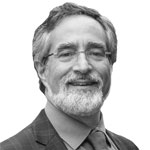I was recently appointed to the city’s Economic Recovery Task Force to help chart a post-Covid path forward for San Francisco’s industries, mom and pop businesses, workers, and consumers.
While Governor Newsom has issued a broad order that all retail and salons may open up in-shop operations across the state, here in densely populated San Francisco, we are taking a more cautious approach, particularly as we see our numbers continue to grow in congregate settings. Here are some of my thoughts about a necessary approach to the city’s economic recovery.
EQUITY AND PUBLIC HEALTH PRIORITIES
A recent Curbed.com piece by Alissa Walker called out urban planners and YIMBY bloggers eager to use the pandemic as an opportunity to market prepandemic agendas that brushed over the systemic inequities that have exacerbated the Covid-19 pandemic in the first place. I’m proud to represent a district with diverse strengths and needs, ranging from some of the city’s most vulnerable communities in SRO hotels and vital essential workers to a tourism industry that has long been the golden goose fueling San Francisco’s local economy.
I have tried to mediate the competing needs of different sectors by grounding policy discussions in public health rationales and equitable application of the law. One recent example? Many of you wrote me about the unequal treatment of Fadi Berbery, 34-year proprietor of Smoke Signals in Russian Hill, who was issued a citation by SFPD for operating his newsstand, which provides essential news in multiple languages, including Chinese, Russian, and Arabic, during the shelter in place. The chief health officer determined that the San Francisco Chronicle‘s news reporting and printing operation was essential business, but Fadi selling those same newspapers was not. It was a decision that prioritized consumers with online accounts over those who have traditionally relied on hard copies of the news, including the high concentration of seniors in my district. Meanwhile, drug dealers continue to operate in the Polk Street alleyways while police resources are wasted citing hardworking operators who thought they were operating essential businesses. As we reopen San Francisco, we must make sure that the city’s public health orders are being equitably applied and that our emergency response is prioritizing our most vulnerable communities.
REPURPOSING PUBLIC SPACE FOR PUBLIC GOOD
One of the first initiatives to flow out of the Economic Recovery Task Force is the Shared Spaces Program, which will allow businesses to apply for no-cost, expedited permits to cooperatively operate community-serving businesses in public spaces, including sidewalks, streets, and parking spots once they have a safe reopening plan in place.
My office has been working with the San Francisco Municipal Transportation Agency, Office of Economic and Workforce Development and — most important — community stakeholders to devise pilot programs on Grant Avenue in North Beach and eventually Jefferson Street at Fisherman’s Wharf. These programs will balance the need for essential deliveries, provide for egress according to Americans with Disabilities Act standards, and give small businesses the flexibility to roll out reopenings tailored to their capacity. Retailers will be permitted to operate outside to facilitate social distancing, restaurants and cafes will be able to set up outdoor tables or maintain space for curbside pick-up, and I will be introducing a fee relief program to ease the burden for operators. Applications should be live by mid-June.
By soliciting support and planning input from property owners, small business owners and neighborhood stakeholders (including those who might be dependent on essential deliveries of food and services), we are modeling a template for equitable and community-led repurposing of the public realm.
OVERSIGHT OF GOVERNMENT RESOURCES
Recently political gadfly and Department of Public Works co-conspirator Nick Bovis pled guilty to corruption charges. We expect that this plea deal and ongoing investigations will continue to reveal areas where good government checks and balances could have staved off the corruption that is visible in everything from the lack of operational trash cans to a broken citywide street cleaning program that hinged on the whims of DPW’s former director, Mohammed Nuru — or wherever the mayor’s next press conference was being held. Any attempt at a successful economic recovery will hinge on addressing head-on the crises that have long plagued our streets — and it will mean holding departments accountable to their respective roles in implementing solutions.
The Department of Public Health has long delayed devising and implementing a behavioral and mental health plan, especially after the former director was ousted for giving her wife lucrative contracts. The Department of Homelessness and Supportive Housing has similarly struggled to implement a plan for a centralized system to move our unhoused population through a continuum of care that includes prioritizing permanent supportive housing placements — of which there are many available citywide. The Department of Public Works has covered up its failure to clean the streets with public relations schemes and awarded contracts for faulty public trash cans, toilets, and shelters to friends.
Our workers, residents, and tourists all have one thing in common: They want government to do its job so that they can do theirs.




